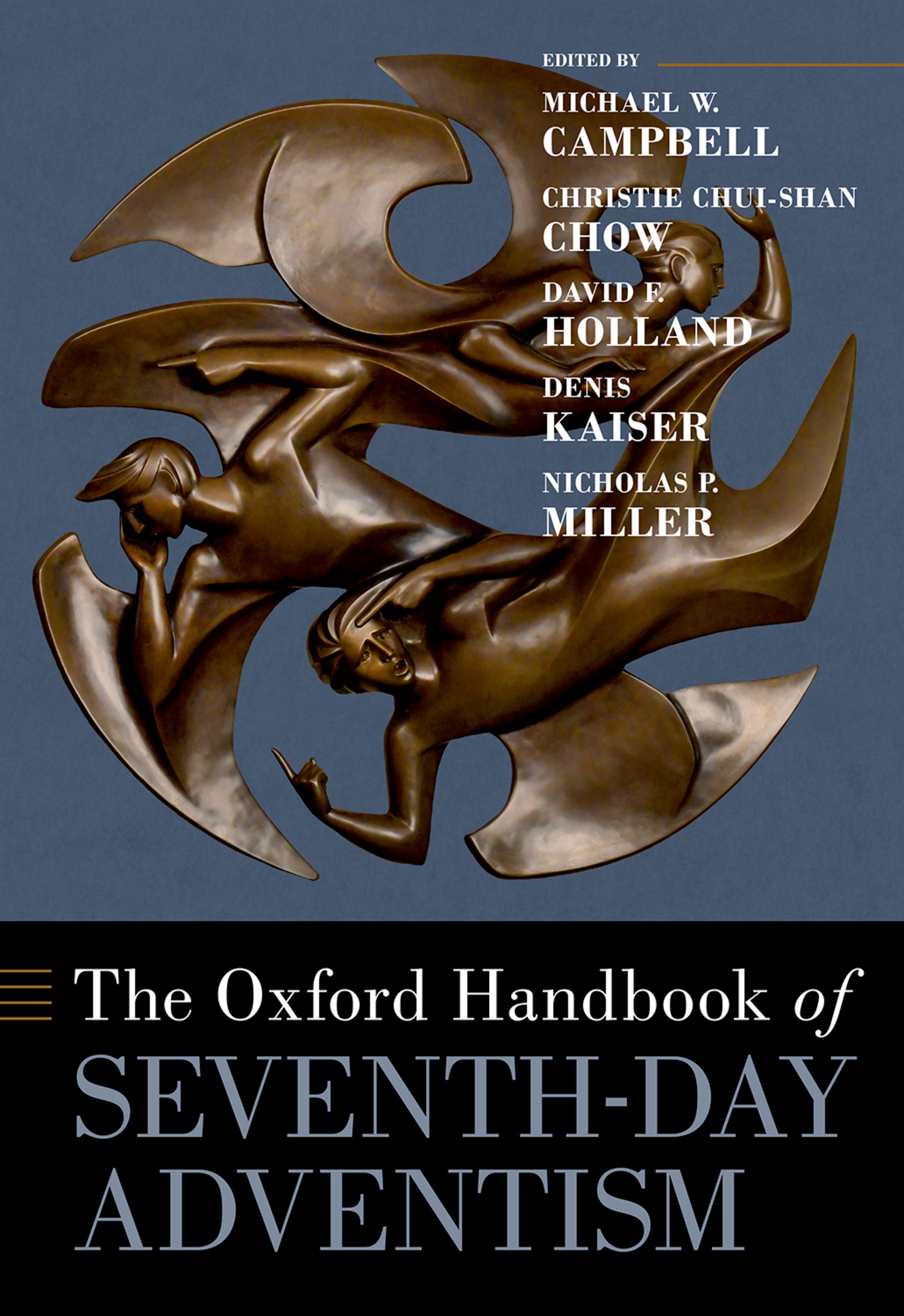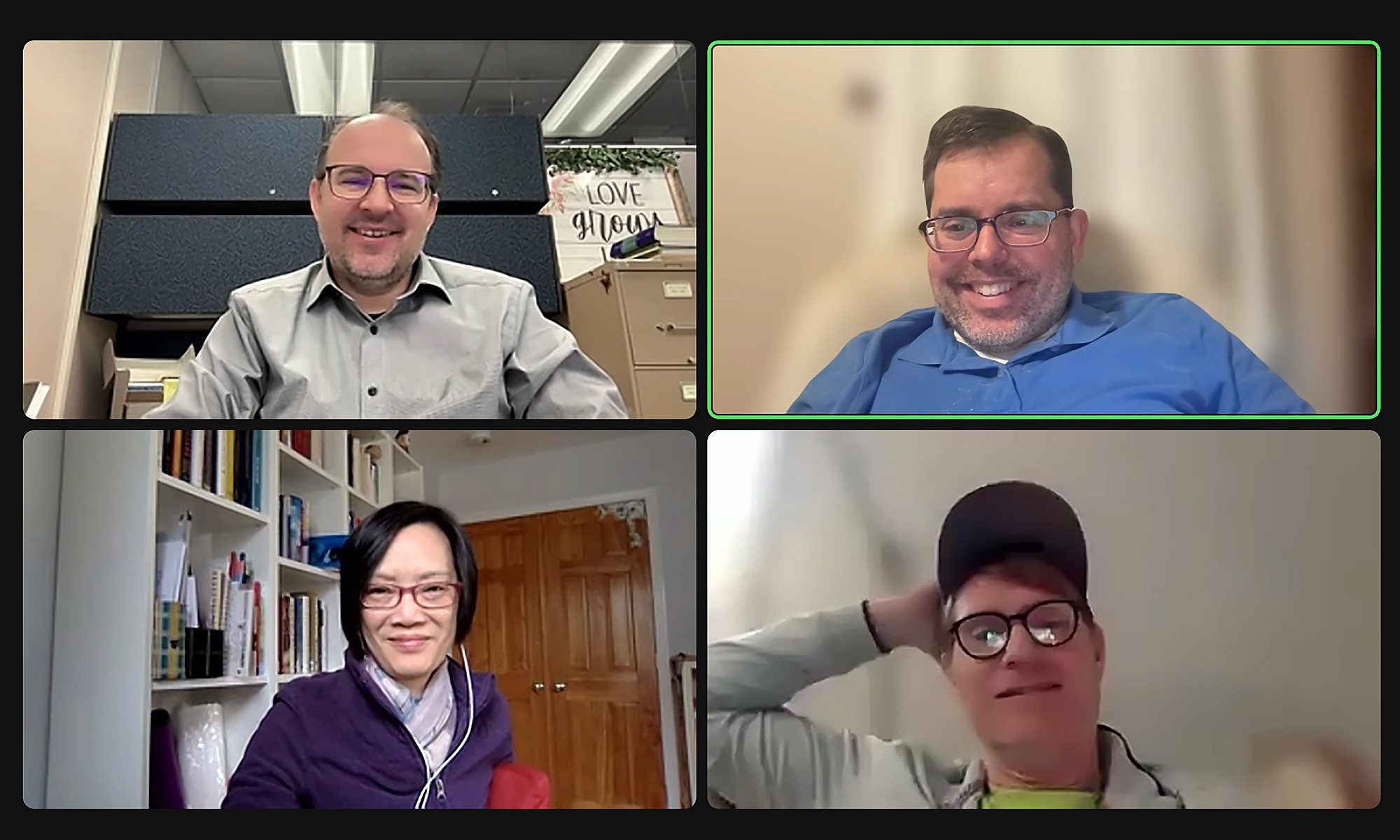
The Oxford Handbook of Seventh-day Adventism is the first comprehensive reference book about Seventh-day Adventism to be published by a major university press. Photo provided by Michael W. Campbell
Ten years ago, after delivering a well-received presentation at the annual American Society of Church History meeting, Michael Campbell, North American Division director of Archives, Statistics, and Research, pitched the idea of a book on Adventism to the head book editor at Oxford University Press.
Intrigued by Campbell’s introduction to Adventist scholarship, the editor invited him to submit a proposal. Their conversation was the catalyst for the groundbreaking Oxford Handbook of Seventh-day Adventism, a 39-chapter volume published in 2024 after much prayer and revision.
While the church has published its own history books, Campbell said, “This is the first reference book about Seventh-day Adventism ever published by a major university press.” He noted that “this book will appear in almost every [prominent] academic university library in the world, whether in print or through academic databases, so it is a chance to explain and share what we believe.”
Campbell credits his team of contributors and editors with bringing this vision to life. His co-editors included scholars Christie Chui-Shan Chow, David Holland, Denis Kaiser, and Nicholas Miller. Adventist historian George R. Knight contributed to the chapters on Adventist education and lifestyle and played a significant role as the project took shape.
The authors and editors selected provide global perspectives from within and outside the Adventist tradition. Per press guidelines, contributors must have a doctoral degree and showcase a diverse set of disciplinary backgrounds, representing a wide range of institutions and specializations, as well as diversity in terms of race and gender. Additionally, most Adventist universities in North America were represented by at least one faculty contributor, alongside contributors from various divisions of the world church.
“It was a learning experience to work with this wonderful team of scholars,” said Chow, editor and author of a chapter on Adventists in Asia. As an East Asian scholar from Hong Kong, educated in the U.S. and U.K. systems, and focused on non-Western Adventist studies, she noted, “The team believed my background could bring an alternative perspective.”

The editorial team gathers for their final meeting. Pictured are (top row, L–R) Denis Kaiser (Andrews University) and Michael W. Campbell (NAD Archives, Statistics, & Research), and (bottom row, L–R) Christie Chui-Shan Chow (independent scholar) and Nicholas P. Miller (Washington Adventist University). Photo provided by Michael W. Campbell
This work is organized into seven sections: I) History of Adventism; II) Scripture, Inspiration, and Ellen White; III) Theology; IV) Worship, Preaching, and Ordinances; V) Organization and Ministry; VI) Global Church; and VII) Culture, Ethics, and Politics. It also includes references and further reading recommendations. To maintain academic integrity, the proposal and each chapter underwent multiple peer reviews by experts in their respective fields.
Kaiser underscored, “We wanted to present themes that would appeal to readers with varying levels of familiarity with Seventh-day Adventism, including chapters [on] historical context, theological insights, Adventist integration of the Bible with Ellen G. White’s writings, what a first-time visitor to an Adventist church might experience, the church’s commitment to education and healthcare, and its involvement in social issues.”
The team envisions this handbook being a valuable resource for students, educators, pastors, church leaders, and scholars of all backgrounds. Knight highlighted its significance: “The Oxford Handbook is a major publishing event because it makes available in one volume the major events in Seventh-day Adventist history, its profile as a worldwide Christian movement, and its concerns and values as it seeks to minister to the world around it.”
NAD president G. Alexander Bryant affirmed, “This is a great tool for the church and other Bible students. It’s important for us to tell our own story and have a venue [for] our theological perspective on what ‘thus saith the Lord’ is. The handbook can help give us direction and a foundation for our biblical and theological understanding.”
“[The handbook] represents the best of Adventist scholarship. When we collaborate across institutions, this is what's possible. I give God the glory for that,” Campbell said in conclusion. He added, “I hope this will be a landmark reference work for some time.”
Click here to learn more about the handbook and here to purchase.
Also, view a recent discussion held at Washington Adventist University on the book and key issues around Adventist identity here.
